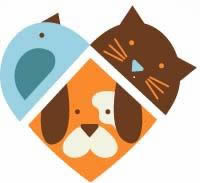
Huisdieren

Huisdieren
Hoewel het waar is dat mannelijke olifanten vaak 'stieren' worden genoemd, is de oorsprong van deze term eigenlijk een beetje complexer dan een eenvoudige analogie met mannelijk vee. Hier is een uitsplitsing:
* Historical Usage: The term "bull" for a male elephant predates the use of "bull" for a male cow. In ancient Greek and Roman cultures, "bull" was a general term for a powerful male animal, including wild animals like lions and elephants.
* Grootte en kracht: Male elephants are significantly larger and more physically powerful than females. This strength and size contribute to the association of "bull" with their dominant, imposing nature.
* Sociaal gedrag: Male elephants are often solitary and compete for mates, showcasing a "bullish" temperament during these competitions.
* evolutionaire aanpassing: Male elephants develop tusks that are used for fighting, digging, and foraging, further reinforcing their "bull-like" characteristics.
It's important to note that, while the term "bull" is widely used, it's not the only way to refer to a male elephant. "Elephant bull" and "male elephant" are also common and more precise terms.
Dus, hoewel de term "stier" voor een mannelijke olifant misschien een eenvoudige analogie met vee lijkt, is deze geworteld in een veel dieper begrip van de fysieke kenmerken van het dier, sociaal gedrag en historische betekenis.